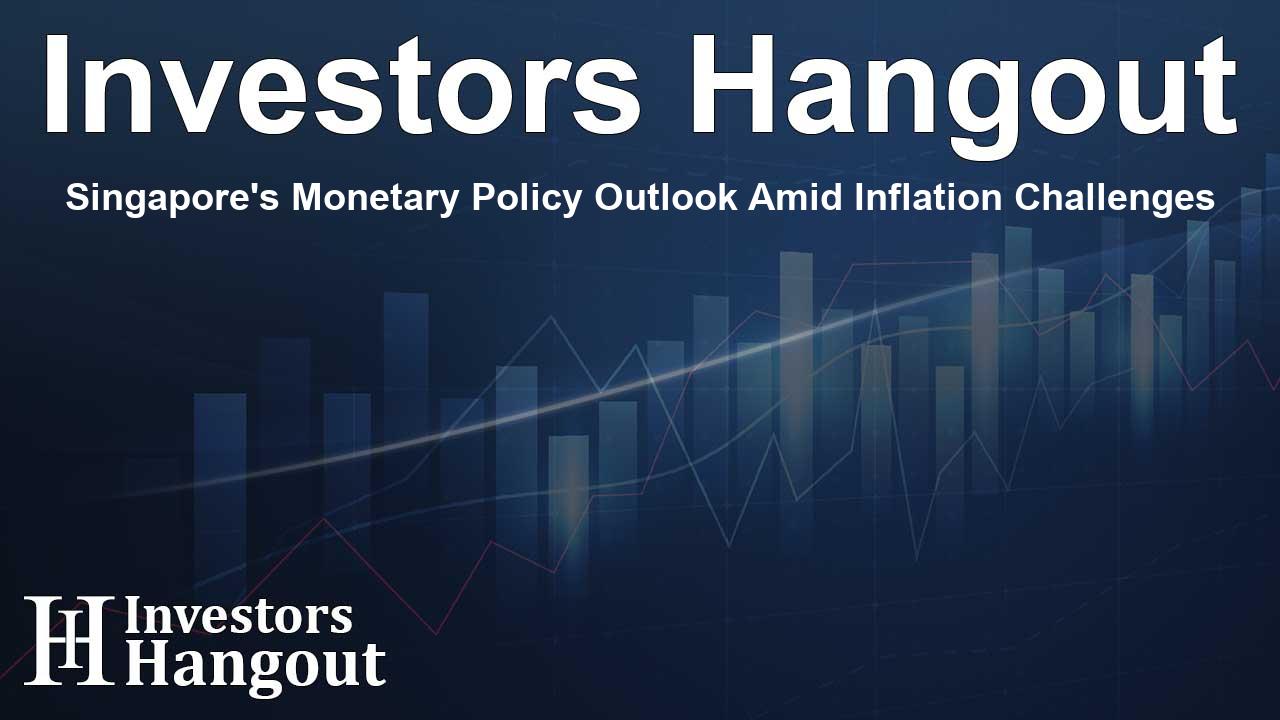Singapore's Monetary Policy Outlook Amid Inflation Challenges

Singapore's Central Bank Expected to Maintain Policy Stability
Recent discussions surrounding Singapore's monetary policy reveal a consensus among economists and analysts that the city-state's central bank is likely to keep its current settings intact for the time being. With ongoing inflation and growth uncertainties, particularly influenced by global geopolitical factors, the Monetary Authority of Singapore (MAS) is set to approach the upcoming review cautiously.
Analysts Predict Stability in Monetary Approach
In a survey conducted by Reuters, nine out of ten analysts believe that the MAS will refrain from making any adjustments at their scheduled review. Denise Cheok, an economist from Moody's Analytics, indicated that rising oil prices due to geopolitical tensions in the Middle East, coupled with adverse weather affecting food supply, have kept inflation at elevated levels. Consequently, food prices remain higher than those seen prior to the pandemic, impacting the overall economic landscape.
The Outlook for Inflation and Economic Growth
Inflation in Singapore remains persistent despite a slight cooling from its peak of 5.5% earlier this year. It recorded a year-on-year rate of 2.7% in August. The MAS has projected a further easing in core inflation rates, possibly falling to between 2.5% and 3.5% as the year draws to a close.
Singapore's Unique Monetary Policy Mechanism
Singapore employs a distinct approach to managing its monetary policy by adjusting the Singapore dollar's value against those of its main trading partners within a flexible band system known as the Singapore dollar nominal effective exchange rate (S$NEER). This management style is meant to provide a more stable economic climate amidst global fluctuations.
Recent Economic Developments and Forecasts
Growth rates offer a glimmer of optimism, as Singapore's GDP saw a year-on-year increase of 2.9% in the second quarter of 2024—surpassing economists' expectations. In light of this improvement, the trade ministry updated its GDP growth forecast for 2024 to a range between 2.0% and 3.0%, signaling a robust economic environment despite global uncertainties.
Global Context and Comparative Analysis
As central banks across the globe begin to implement rate cuts, the MAS remains cautious, having not adjusted its policy settings since tightening measures were introduced in October 2022. Meanwhile, UOB bank has emerged as the lone predictor of a potential monetary loosening next week, suggesting that external factors and trends in advanced economies will influence MAS's decision.
The MAS's strategy emphasizes long-term stability over short-term fluctuations, indicating that a shift in policy may not occur until early 2025 if ongoing inflation trends do not improve. Economists, including those at Maybank, interpret recent declines in the Singapore Overnight Rate Average (SORA) in conjunction with U.S. rate cuts as a form of virtual easing, showcasing Singapore's adaptability in a changing economic landscape.
Future Considerations for the MAS
As the MAS navigates these complexities, market observers will be keenly watching the institution’s forthcoming announcements. The decision to maintain stability reflects a deeper commitment to fostering a stable economic environment while remaining vigilant toward any shifts in inflation dynamics. This careful balancing act ensures that Singapore's monetary policy can robustly support its economy as global attributes continue to fluctuate variably.
Frequently Asked Questions
What is the current inflation rate in Singapore?
The inflation rate in Singapore stood at 2.7% year-on-year as of August 2023.
Why is the Monetary Authority of Singapore holding its policy steady?
Due to ongoing inflation and economic uncertainties influenced by global geopolitical factors, the MAS is cautious about making changes at this time.
When is the next review of Singapore's monetary policy?
The next scheduled review of monetary policy by the MAS is set for next Monday.
What influences Singapore's monetary policy?
Singapore manages its monetary policy primarily through the S$NEER, which adjusts the Singapore dollar's value against major trading partners rather than through direct interest rate changes.
How has Singapore's GDP been performing recently?
Singapore's GDP grew by 2.9% year-on-year in the second quarter of 2024, indicating stronger-than-expected economic performance amidst global challenges.
About Investors Hangout
Investors Hangout is a leading online stock forum for financial discussion and learning, offering a wide range of free tools and resources. It draws in traders of all levels, who exchange market knowledge, investigate trading tactics, and keep an eye on industry developments in real time. Featuring financial articles, stock message boards, quotes, charts, company profiles, and live news updates. Through cooperative learning and a wealth of informational resources, it helps users from novices creating their first portfolios to experts honing their techniques. Join Investors Hangout today: https://investorshangout.com/
Disclaimer: The content of this article is solely for general informational purposes only; it does not represent legal, financial, or investment advice. Investors Hangout does not offer financial advice; the author is not a licensed financial advisor. Consult a qualified advisor before making any financial or investment decisions based on this article. The author's interpretation of publicly available data shapes the opinions presented here; as a result, they should not be taken as advice to purchase, sell, or hold any securities mentioned or any other investments. The author does not guarantee the accuracy, completeness, or timeliness of any material, providing it "as is." Information and market conditions may change; past performance is not indicative of future outcomes. If any of the material offered here is inaccurate, please contact us for corrections.